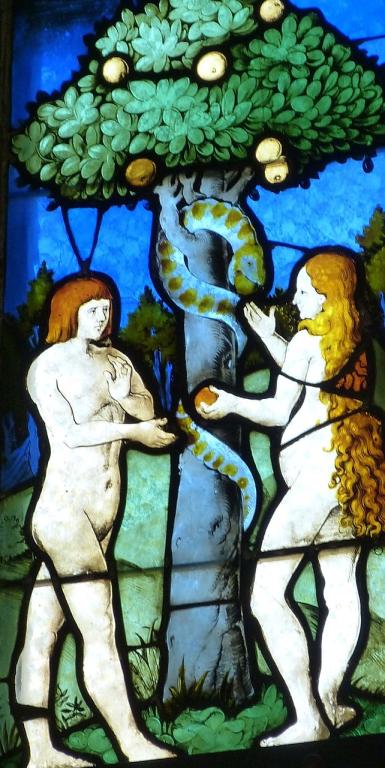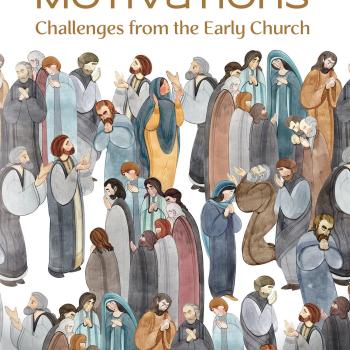There are a number of reasons people normally start with Adam when sharing the gospel.
- Adam’s fall, following the creation account, stands at the beginning of the biblical story. Naturally, people simply follow the sequence of events.
- People want to explain the origin of sin.
- People use the Adam story to explain the meaning and significance of “sin.”
Other reasons could be added, but I think these capture the main ones.
What is the problem with Adam?
I am not claiming that someone is “wrong” to begin with Adam and Eve. Obviously, this is a significant story in Scripture.
I am suggesting that starting with a lengthy discussion about the first couple may not be the best approach to take. For one thing, whether it is a wise starting point or not would first of all depend on how and why one appeals to Adam. (I’ll try to elaborate more on this later).
We need to be aware of what problems may emerge even when using true biblical stories, like those in Genesis 2–3. What are some of these potential challenges? I’ll list five.
-
Adam creates early and unnecessary apologetic problems
Like many others, Chinese people often object to the conclusion drawn from the Adam story. Think about what it sounds like from their perspective:
“Some couple, thousands of years ago, had a fruit fixation and so now I have to go to hell.”
Regardless of whether that is what we mean by telling the story, that is roughly the impression people tend to get.
I’ve heard people raise the question more than a few times, “So what do they have to do with me?” In order to answer that question, we immediately have to get into a number of philosophical and theological issues that sidetrack the conversation early and unnecessarily.
-
Distracts Others with Our Questions

Westerners have long been fixated on issues related to “theodicy”, i.e. the philosophical problem of evil in the world. I have in mind now the origin of evil.
However, the truth is that everyone knows that something is wrong with the world, whether it be divorce, disease, demons, or simply death. Also, people intuitively know they are not perfect, even if we may disagree about the details of our imperfections.
Someone might say that the Chinese (among others) believe in humanity’s basic goodness; therefore, we need to prove “original sin.” Is the doctrine of “original sin” needed in the first part of an evangelistic conversation? Not only that, we would be hard pressed to argue that point conclusively simply from Genesis 3.
To go too far outside Genesis 3 in the early going only makes our presentation more complex and distracting.
Not only that, we have another question to consider. So what if we successfully argue for the origin of evil? Not every really cares about this question. One then still has to make clear the nature of sin and how to solve it.
-
Individualistic misuse of Adam
Starting with Adam rather than elsewhere may unwittingly reinforce an individualistic view of sin and salvation. We need to distinguish “individualistic” from what is “personal.” Sin and salvation are personal in that they concern each person; yet, there are inherently social or collectivistic facets to sin and salvation as well.
By starting with the individual, one might overlook the group. However, when you have the group, you get the individual included as well.
-
Adam’s sin can feel abstract and not concrete.
People naturally experience sin in the context of relationships. We grasp the force of sin when it’s discussed in a social context. The individual isolated from others and alone with a fruit tree could feel a bit abstract for some. I’ll touch on this more in a future post.
-
Misunderstands Adam?
The most common presentation of Adam and Eve does not reflect clearly enough their theological significance, at least as seen in the New Testament. Notice the two main sections that Paul focuses on Adam (Rom 5; 1 Cor 15). Paul uses Adam primarily to make Christological points. The Adam story is set within a royal context. The battle over kingship and its relation to Christ are too often missed in standard presentations.
So, what do you suggest?
Besides all that has been said above, we must keep in mind once again that we have no examples in the New Testament where someone gives a gospel presentation that begins with Adam in order to prove that someone is a sinner.
We should at least be humble enough to ask why this is the case.
In the next post, I’ll suggest another possibility, one that is particularly suitable for traditional cultures. It involves starting with the groups rather than the individual. I will also clarify how one could perhaps start with Adam.
Until then, what are your thoughts?
What responses do you typically see when you open a gospel presentation talking about the Adam story?
















